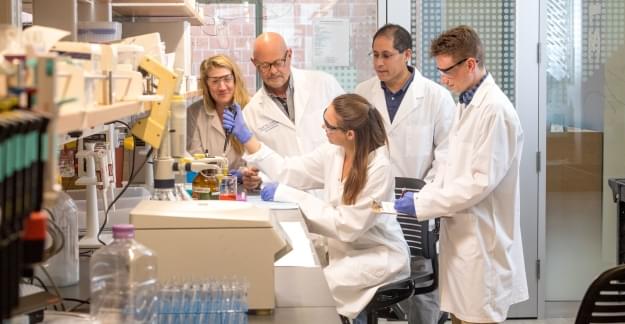An enzyme with an elusive role in severe inflammation may be a key mechanism driving COVID-19 severity and could provide a new therapeutic target to reduce COVID-19 mortality, according to a study published in the Journal of Clinical Investigation.
Researchers from the University of Arizona, in collaboration with Stony Brook University and Wake Forest School of Medicine, analyzed blood samples from two COVID-19 patient cohorts and found that circulation of the enzyme — secreted phospholipase A2 group IIA, or sPLA2-IIA, — may be the most important factor in predicting which patients with severe COVID-19 eventually succumb to the virus.
Researchers have identified what may be the key molecular mechanism responsible for COVID-19 mortality – an enzyme related to neurotoxins found in rattlesnake venom.
